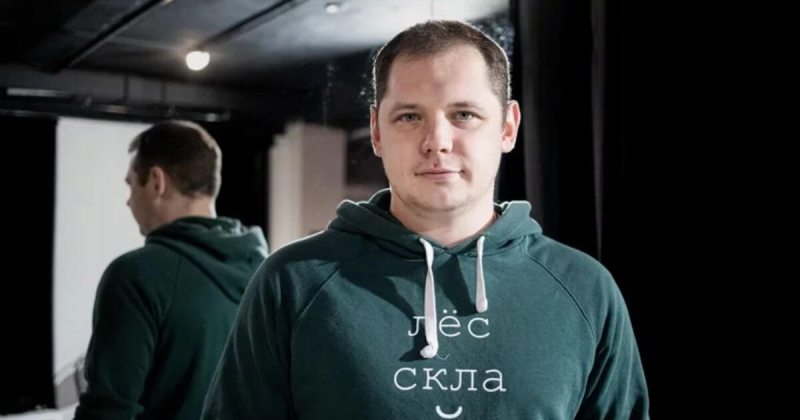"The political nature of the charges is already obvious." Human rights activist comments on the case of Vasil Verameichyk
On November 20, it became known that, at the request of the KGB, Vietnam handed over 34-year-old former volunteer Vasil Verameichyk to Belarus. In a propagandists' film, the head of the KGB investigation department stated that the man was allegedly on the criminal wanted list in a criminal case on the activities of the Kalinoŭski Regiment, recognized in Belarus as a "terrorist organization". But on November 27, human rights activists recognized Vasil as a political prisoner and indicated Article 366 of the Criminal Code (a threat against an official performing official duties) as the charges brought in Belarus. Together with Viasna human rights defender Pavel Sapelka, we are discussing the case of Vasil Verameichyk and the practice this case generates concerning the extradition of Belarusians.

- Vasil Verameichyk
Viasna human rights activist Pavel Sapelka comments on the prompt recognition of Verameichyk as a political prisoner:
"Human rights activists did not wait for the Belarusian authorities to charge Verameichyk with criminal offenses based on the arbitrary recognition of formations of Belarusian volunteers as either an extremist or a terrorist formation.
We took into account the gravity and nature of this accusation, the contradictory actions and statements of the authorities, and the gross violation of the right not to be subjected to the threat of torture. The political nature of the charges is already obvious, as is the total disregard for the procedural and civil rights of the political prisoner: he was handed over to the Belarusian authorities without taking into account Vietnam's obligations under the Convention against Torture."
Under Article 3.1 of the Convention, no State Party shall expel, return ("refouler"), or extradite a person to another State where there are substantial grounds for believing that they would be in danger of being subjected to torture. Paragraph 2 of Article 3 of the Convention notes that for the purpose of determining whether there are such grounds, the competent authorities shall take into account all relevant considerations including, where applicable, the existence in the State concerned of a consistent pattern of gross, flagrant, or mass violations of human rights.
"The mechanisms will operate outside the legal framework"
It is known that Vasil Verameichyk was detained in Vietnam on November 13, and he was taken to Belarus the next day. Pavel Sapelka draws attention to the fact that agreements on handing Belarusians over could have been reached during high-level meetings with the Minister of Public Security of Vietnam, which took place a couple of days before the incident — on September 6 and 9 this year.
"It should be noted that the implementation of extradition procedures often prevents irreparable damage to the rights of citizens, even in undemocratic states with weak judicial power. For example, in the Russian Federation, there were cases of successfully contesting the extradition to Belarus, and in these cases, the wanted persons had a chance to leave for a safe country.
In general, we will observe the consolidation of authoritarian and totalitarian regimes in the fight against their ideological opponents. For example, on November 1 of this year, Russian Prosecutor General Igor Krasnov stated the need to strengthen cooperation between the Russian Federation and the Belarusian authorities on the issue of apprehending wanted defendants, and explained that 'in recent years, agencies have observed an unconstructive, politically biased attitude of the competent authorities of some foreign states, as well as international organizations, to issues of cooperation in general, and the extradition of criminals in particular.' 'There are mechanisms for responding to such actions,' the Russian Prosecutor General said.
The ambiguity of the statement adds confidence that the mechanisms will operate outside the legal framework. They may use the imperfection of migration practices of democratic states, corruption schemes, and, possibly, affect those not related to the wanted persons."

















